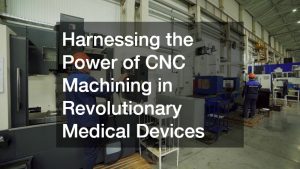In the past, hospitality has been defined by providing a place for travelers to sleep and eat. However, there has been an increased focus on creating exceptional experiences that exceed customer expectations with innovations in service and technology in recent years.
This article will explore how modern practices are changing hospitality and what businesses can do to stay ahead of the curve.
Online Booking and Reservation System
One of the most significant advances in hospitality technology has been the development of online booking and reservation systems. These systems allow customers to book a room or table at a hotel or restaurant quickly and easily, often with a few clicks. It makes the booking process more convenient for customers and allows businesses to manage reservations more efficiently.
This system also prevents overbooking, which can often be a problem for hospitality businesses. Online booking and reservation systems are now essential for any business looking to stay competitive in the hospitality industry.
Guest Management System
Another vital piece of hospitality technology is the guest management system. This system allows businesses to keep track of customer data, including contact information, preferences, and past transactions.
You can use this information to provide a more personalized experience for customers and create marketing campaigns specifically tailored to them.
Guest management systems are essential for businesses that want to offer a truly personalized experience to their customers. This way, companies can keep track of customer behavior and preferences to ensure they provide the best possible experience.
Self-Service Kiosks
Another technology that is changing hospitality is self-service kiosks. These kiosks allow customers to check-in and out of hotels and restaurants without interacting with a staff member. It can save businesses time and money and provide a more convenient experience for customers.
Self-service kiosks are becoming increasingly popular in the hospitality industry and are likely to become even more common. So, businesses that want to stay ahead of the curve should consider implementing them.
Digital Itinerary
Another way that technology is changing hospitality is through digital itineraries. These itineraries allow businesses to provide customers with a personalized list of activities, restaurants, and attractions based on their preferences.
This tool can be valuable for businesses looking to upsell customers on additional services or products. It can also help firms to cross-sell products and services to customers.
In doing so, businesses can increase revenues and create a more enjoyable experience for customers.
Fleet Organization
Many hospitality businesses, such as tourism hotels and restaurants, offer transportation services to their customers. In the past, this process was often managed manually, leading to errors and inefficiencies.
With fleet organization technology, businesses can now manage their transportation services more effectively. It allows companies to track vehicles, scheduled maintenance, and dispatch drivers.
A GPS tracker for ATVs, vans, and cars gives a complete solution by monitoring the location of your vehicles and assets. It shows the current movement of vehicles and ensures they are being used efficiently. This feature can save businesses time and money and improve customer service by providing vehicles where they need to be when customers need them.
Digital Marketing

Another area where technology is changing hospitality is digital marketing. Businesses relied heavily on print marketing, such as brochures and flyers, to promote their services. However, with digital marketing, businesses can now reach a wider audience more efficiently.
Digital marketing allows businesses to target specific demographics with laser precision. Additionally, companies can track the performance of their marketing campaigns and make necessary adjustments in real-time.
This way, businesses can ensure they are getting the most out of their marketing budget and reach their customers more effectively.
Smart Cleaning
Finally, one of the most critical technologies for hospitality businesses is innovative cleaning. With the rise of the sharing economy, companies are seeing increased customer arrivals and departures. This situation can often lead to a buildup of dirt and dust in a short period.
Innovative cleaning technologies allow businesses to address this issue quickly and efficiently. It will enable companies to schedule cleaning sessions, track the progress of cleaners, and ensure a high level of cleanliness.
This way, businesses can keep their premises clean and provide a better experience for customers.
The hospitality industry is constantly evolving and changing, and to stay competitive, businesses need to adapt to these changes. The technologies mentioned above are some of the most significant advances in hospitality and should be considered by any company looking to stay ahead of the curve.
While it is impossible to predict the future, it is clear that technology will continue to play a significant role in the hospitality industry. So, businesses that embrace new technologies and use them to their advantage will be well-positioned for success.




